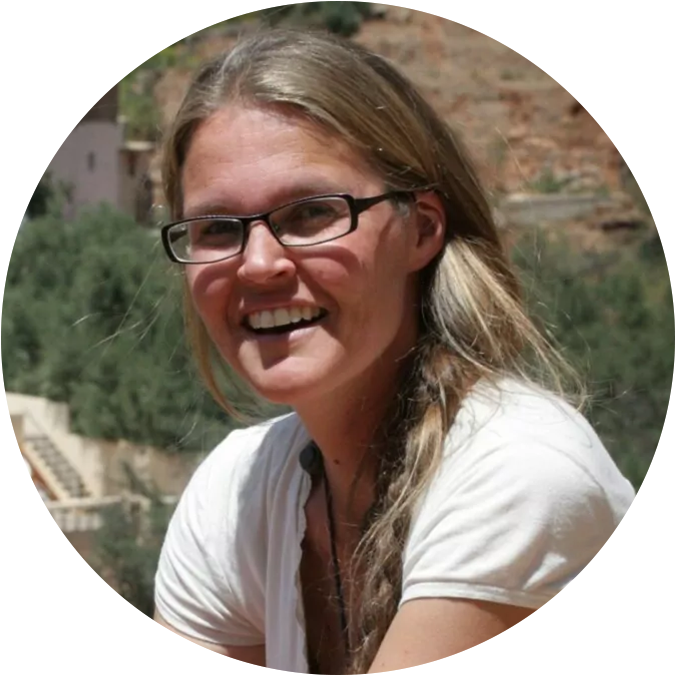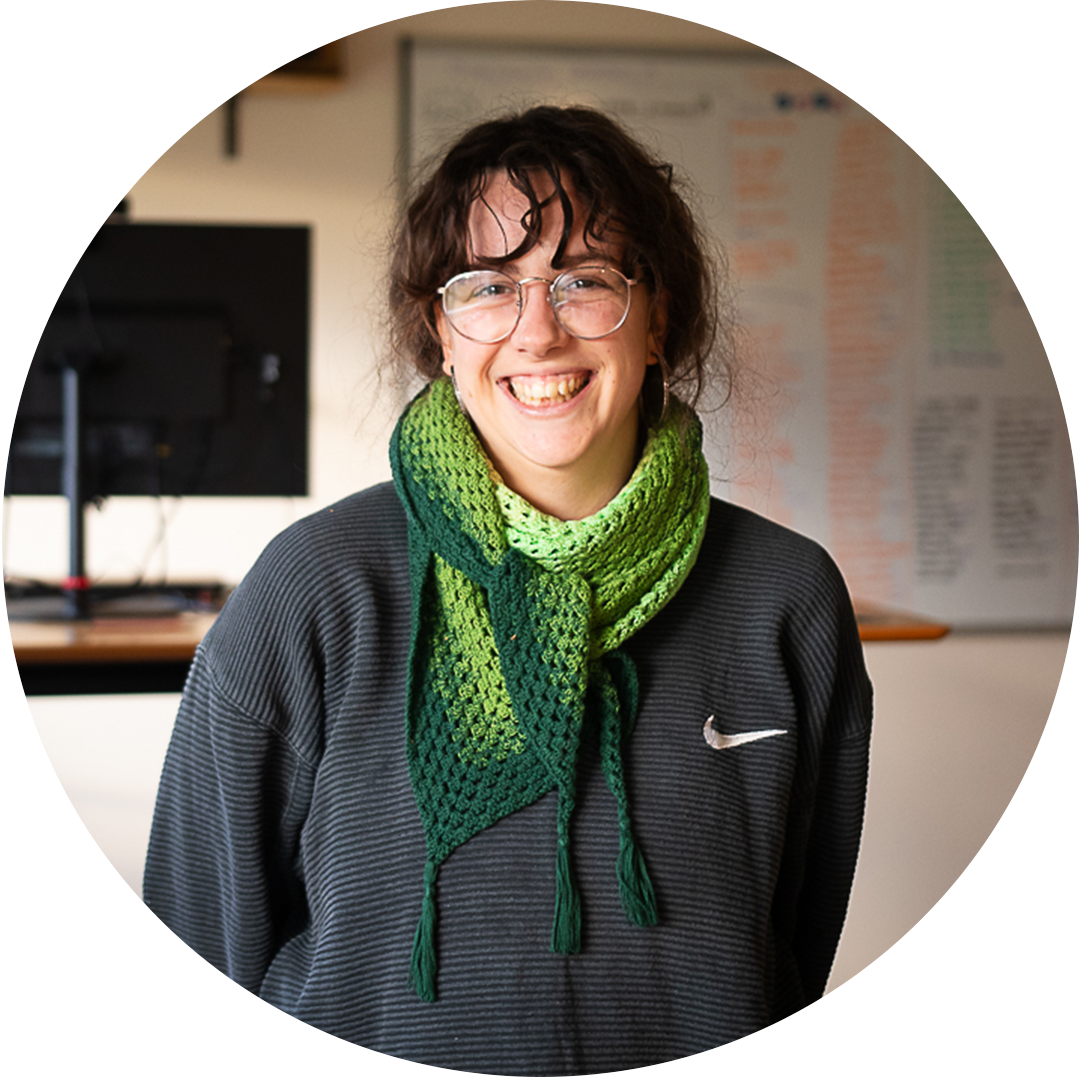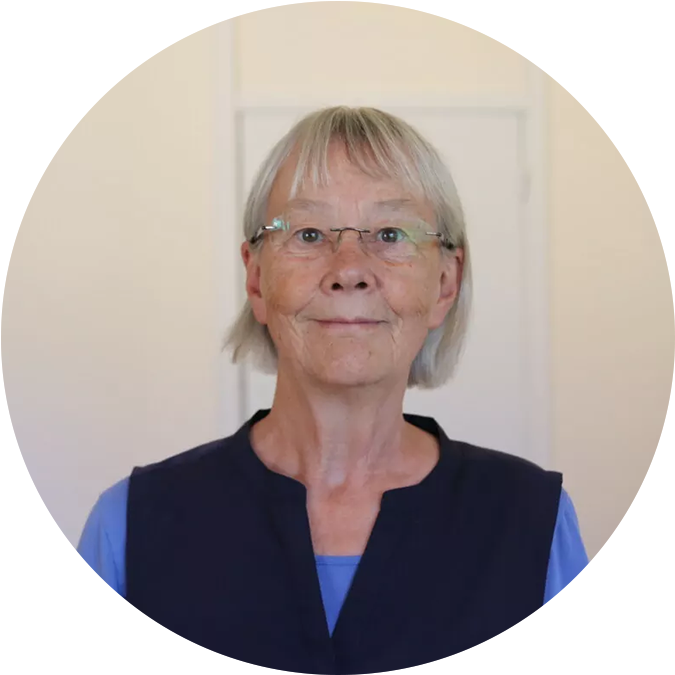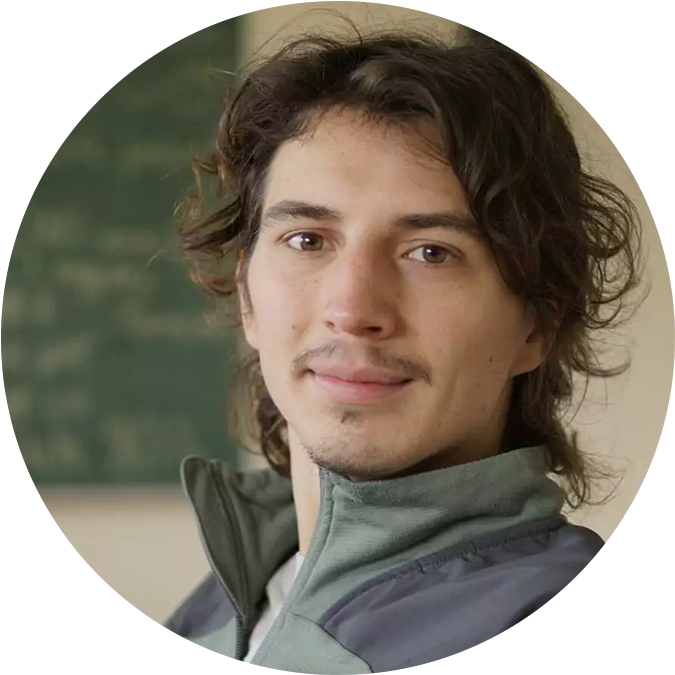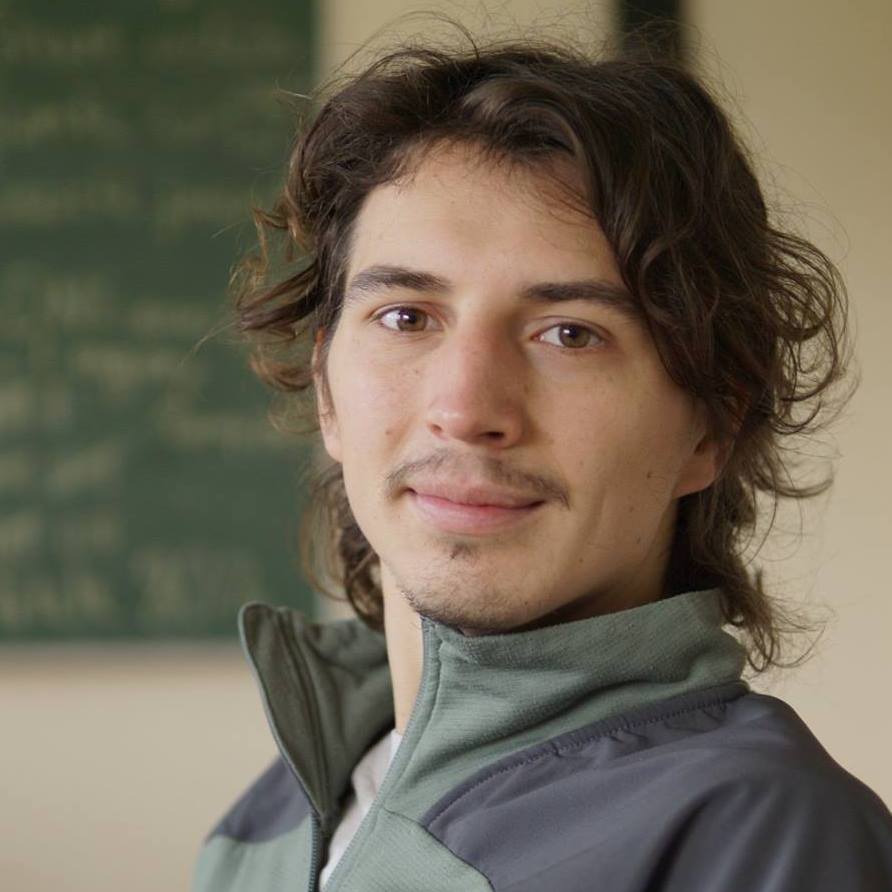What is DNS?
What is DNS?
Our Education
“DNS” is an abbreviation for “Det Nødvendige Seminarium” which is Danish for “The Necessary Teacher Training College”. This ambitious name reflects the fundamental idea around which our school is shaped.
It is necessary to train progressive personalities who are able to understand and respond to the many challenges of our times. This was needed when the college was founded in 1972, and is no less needed today.
The Necessary Teacher Training College offers an intensive four-year programme, structured with specific periods and filled with thoughtful experiences, aiming to equip its students with a solid base for their lives after DNS, and with a well-rounded preparation to face the challenges of the future.
When you start the DNS programme, you enrol as a distance learning student in the “Bachelors in Educational Sciences” programme offered by ISET- One World.
Since DNS was established in 1972, over 1.000 graduates have played an important role in bringing equitable quality education to children and youth, as well as in all sorts of other projects and development programmes worldwide.
Our Education
“DNS” is an abbreviation for “Det Nødvendige Seminarium” which is Danish for “The Necessary Teacher Training College”. This ambitious name reflects the fundamental idea around which our school is shaped.
It is necessary to train progressive personalities who are able to understand and respond to the many challenges of our times. This was needed when the college was founded in 1972, and is no less needed today.
The Necessary Teacher Training College offers an intensive four-year programme, structured with specific periods and filled with thoughtful experiences, aiming to equip its students with a solid base for their lives after DNS, and with a well-rounded preparation to face the challenges of the future.
When you start the DNS programme, you enrol as a distance learning student in the “Bachelors in Educational Sciences” programme offered by ISET- One World.
Since DNS was established in 1972, over 1.000 graduates have played an important role in bringing equitable quality education to children and youth, as well as in all sorts of other projects and development programmes worldwide.
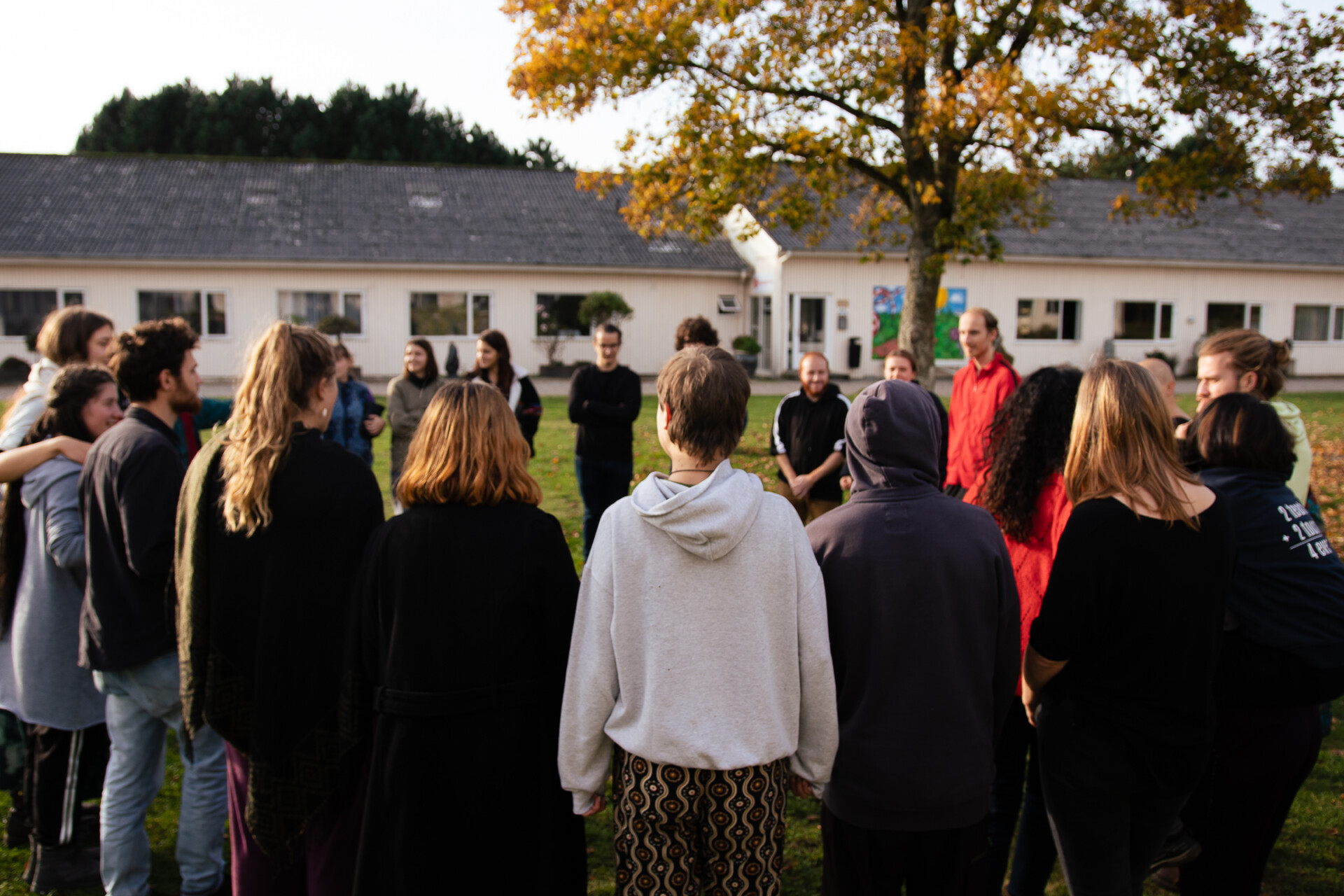
DNS aims to create personalities capable of understanding the issues of today’s world, of taking a stand and acting upon them.
Throughout the programme, the DNS students are exposed to various very ‘real’ and relevant issues. They learn about the world and other societies, and by doing so they put their own culture and beliefs into perspective. They quickly realise that the way things work in our present reality is not the only way things could work, and thus, that our reality is not as fixed, predetermined or unavoidable as it seems. It can, in fact, be influenced and changed, and it is us, the people, who are responsible for having an impact on the world, who are in charge of making it move in the direction of how we would like our future to look like.
Education is a form of activism, when it communicates that it is our responsibility to act towards the shaping of a better future, and that it is possible if we are together, to have an impact on the current state of the world. The DNS programme also values some other elements, such as experience-based learning methods and community life, which also dare to contradict the current state of things and aim to have a positive impact on the world.
In our contemporary times, bringing quality education at everyone’s reach is, in fact a revolutionary act.
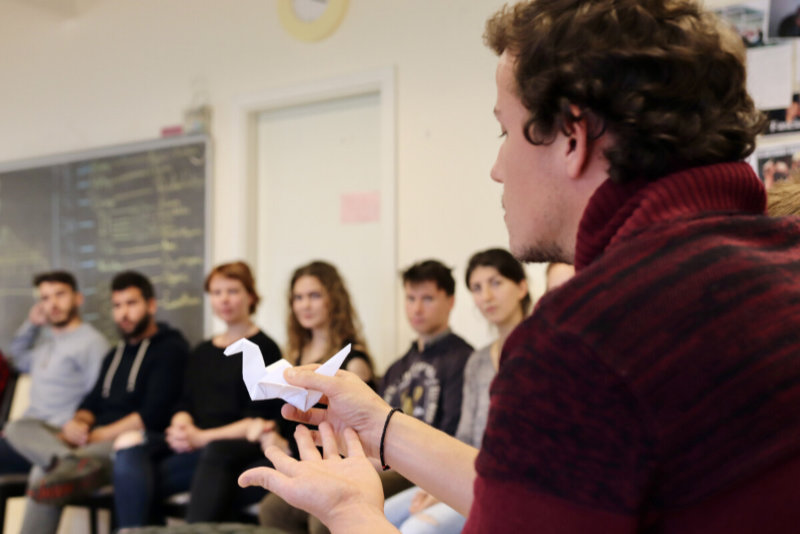

DNS aims to create personalities capable of understanding the issues of today’s world, of taking a stand and acting upon them.
Throughout the programme, the DNS students are exposed to various very ‘real’ and relevant issues. They learn about the world and other societies, and by doing so they put their own culture and beliefs into perspective. They quickly realise that the way things work in our present reality is not the only way things could work, and thus, that our reality is not as fixed, predetermined or unavoidable as it seems. It can, in fact, be influenced and changed, and it is us, the people, who are responsible for having an impact on the world, who are in charge of making it move in the direction of how we would like our future to look like.

Education is a form of activism, when it communicates that it is our responsibility to act towards the shaping of a better future, and that it is possible if we are together, to have an impact on the current state of the world. The DNS programme also values some other elements, such as experience-based learning methods and community life, which also dare to contradict the current state of things and aim to have a positive impact on the world.
In our contemporary times, bringing quality education at everyone’s reach is, in fact a revolutionary act.
More than a teacher's education
Defining DNS as just a teacher’s education degree would be restrictive: the DNS programme is tightly intertwined with a lifestyle, which demands that the students and teachers live together and go through some of the different aspects of the human experience – in a cooperative way.
Throughout the duration of the programme, students and teachers study, travel, work, do sports, cook and share life together. For this reason, DNS can be described as an intentional community with an educational twist.
From the very first day in 1972, DNS has been a school for people to live together, share their traditions, views and opinions. Due to its mix of cultures and nationalities, Tvind — the campus in which the DNS institution is based — has developed to be a truly unique place.
The pioneering spirit of this unique education can easily still be felt today.
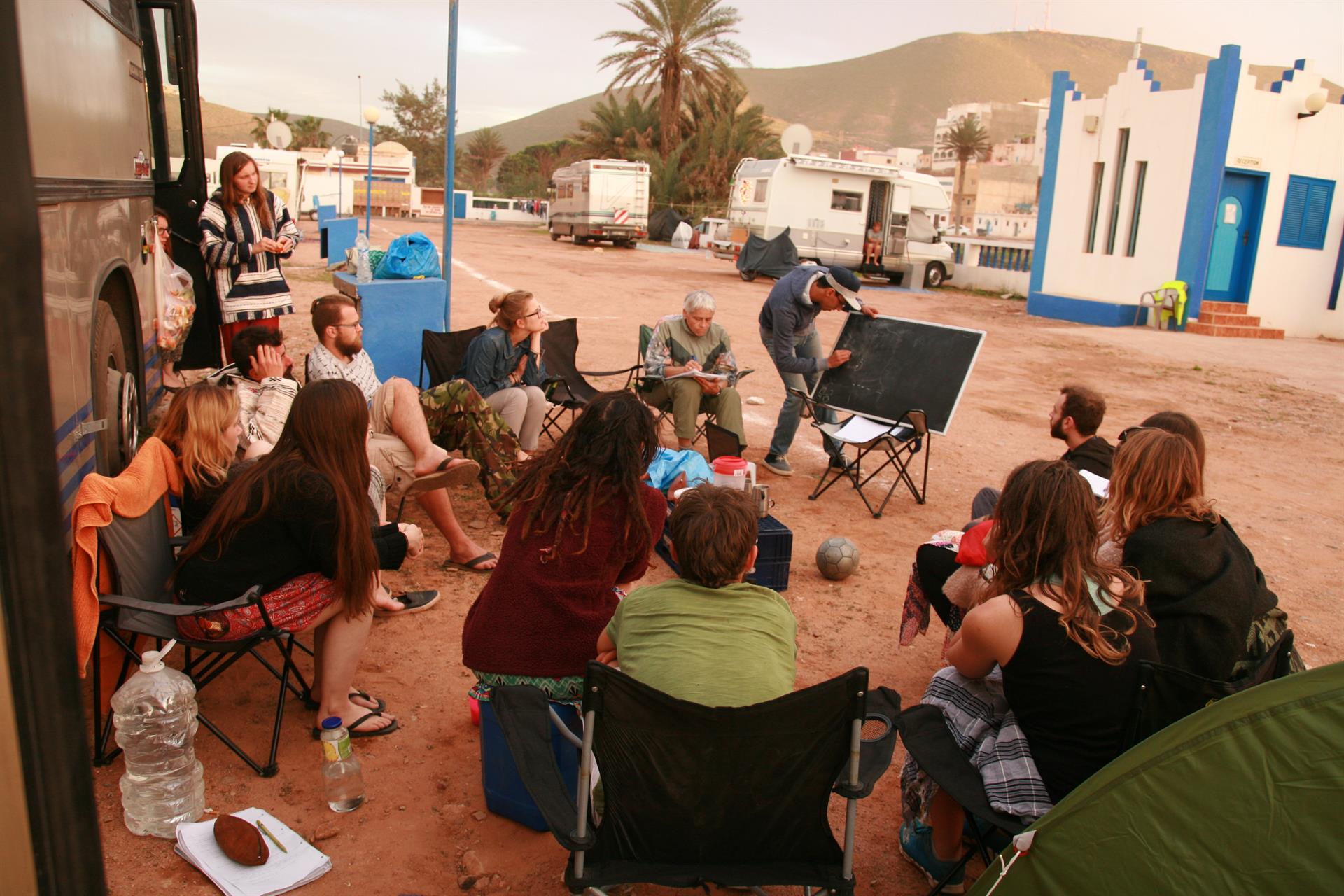
More than a teacher's education
Defining DNS as just a teacher’s education degree would be restrictive: the DNS programme is tightly intertwined with a lifestyle, which demands that the students and teachers live together and go through some of the different aspects of the human experience – in a cooperative way.
Throughout the duration of the programme, students and teachers study, travel, work, do sports, cook and share life together. For this reason, DNS can be described as an intentional community with an educational twist.
From the very first day in 1972, DNS has been a school for people to live together, share their traditions, views and opinions. Due to its mix of cultures and nationalities, Tvind — the campus in which the DNS institution is based — has developed to be a truly unique place.
The pioneering spirit of this unique education can easily still be felt today.

An International Campus
An International Campus
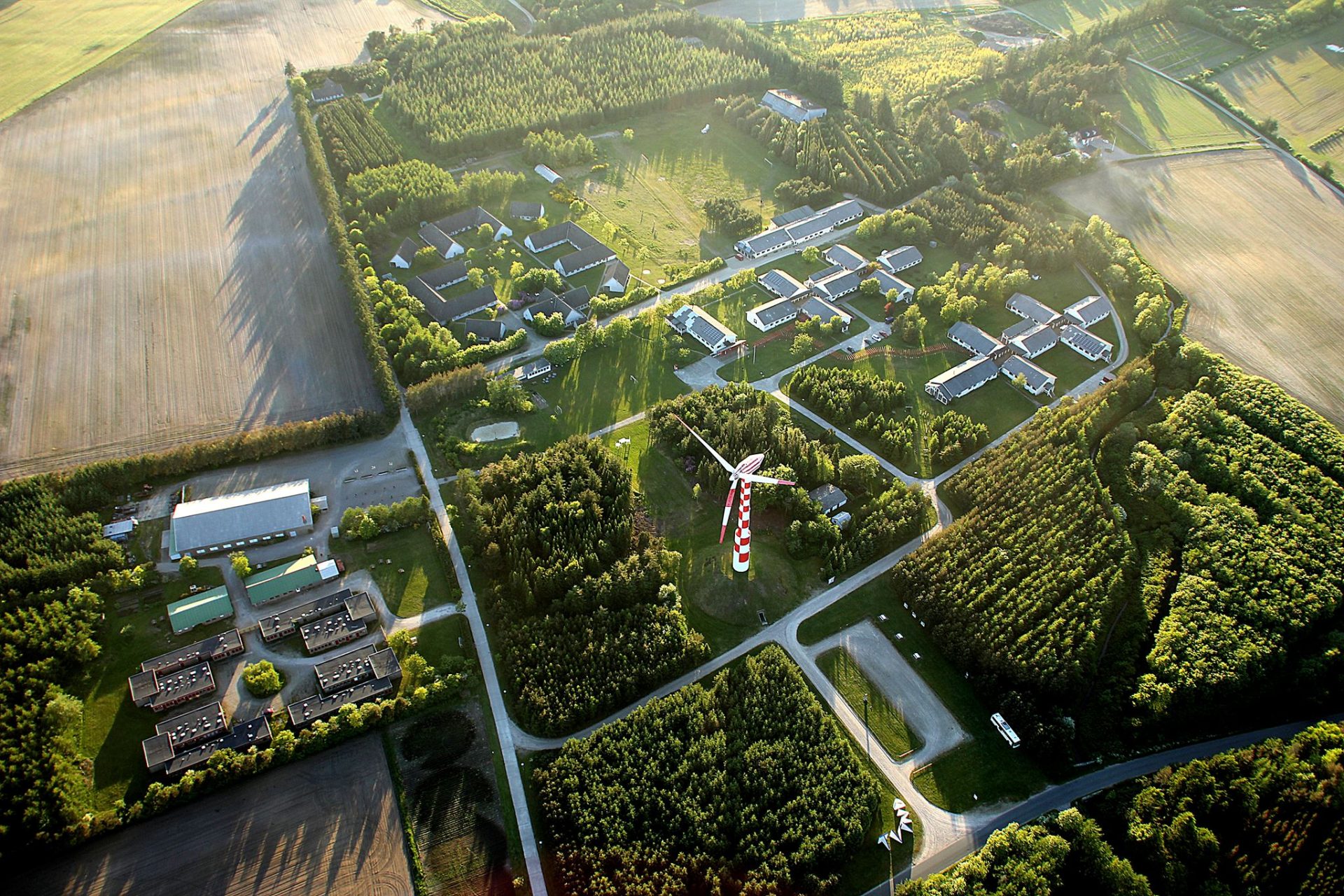
Situated in Western Jutland, only 14 km from the North Sea shore, near the city of Holstebro, the Tvind International School Centre works as a base for different educational institutions, lumped together by a strong tradition of being untraditional. Among the different institutions, Tvind hosts a care home for adults with extraordinary needs — who would easily be marginalised in an ordinary society setting, and who benefit a lot from being part of the community. In the campus, a conscious effort is put into creating an inclusive environment. You can read more about our the concept and practice of integration here.
Read more about the campus.
Situated in Western Jutland, only 14 km from the North Sea shore, near the city of Holstebro, the Tvind International School Centre works as a base for different educational institutions, lumped together by a strong tradition of being untraditional.
Among the different institutions, Tvind hosts a care home for adults with extraordinary needs — who would easily be marginalised in an ordinary society setting, and who benefit a lot from being part of the community. In the campus, a conscious effort is put into creating an inclusive environment.
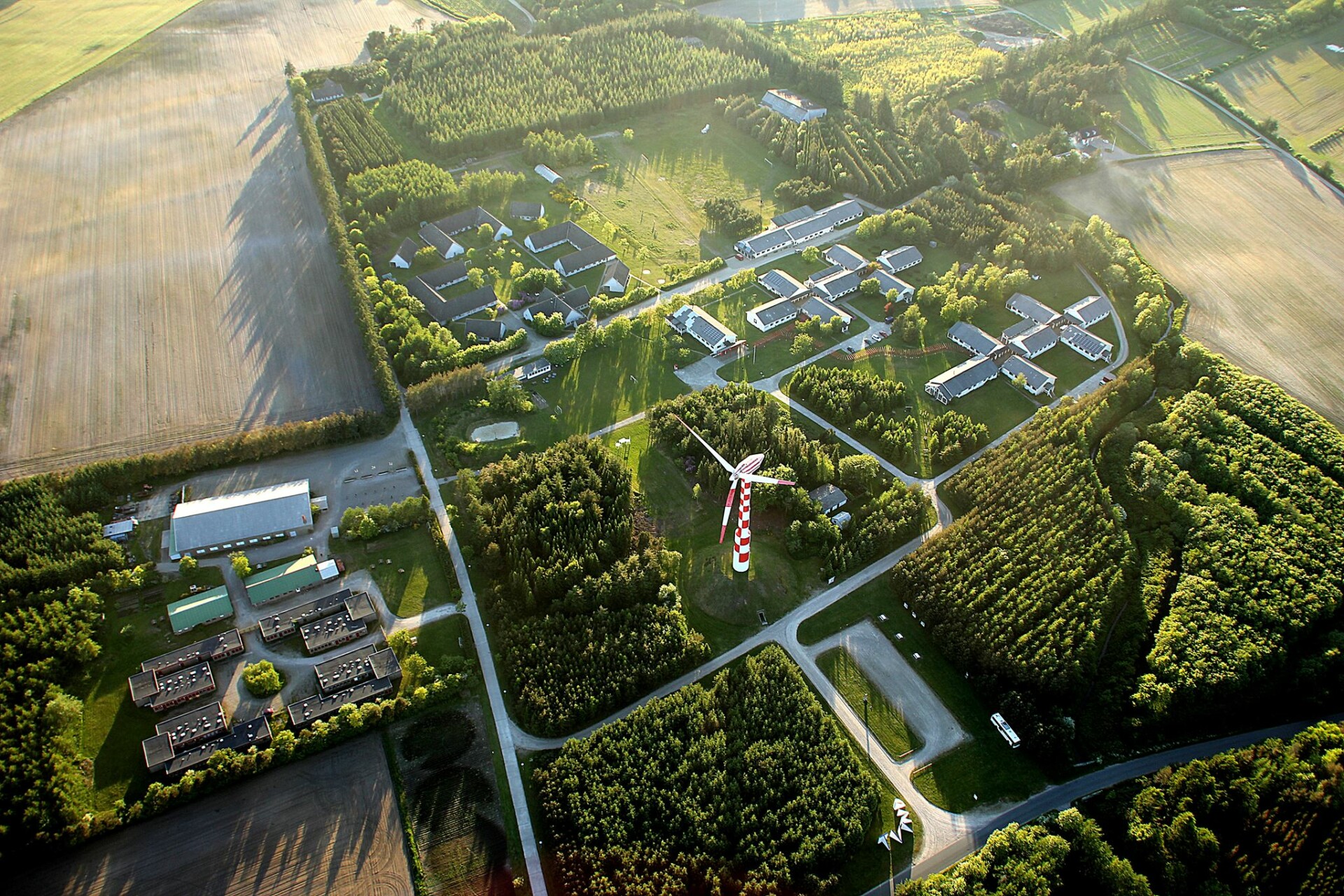
Getting here
The nearest town is Ulfborg. We will arrange for someone to pick you up at the train station there. Here is information on how to get there:
By Flying
✈️ Billund Lufthavn
- Near Vejle
- cheaper airlines such as Ryanair
- Distance from campus and price 2-3 hours 150dkk (standard ticket)
✈️ Aarhus Lufthavn
- near Aarhus
- not so many flights outside of Denmark, some Ryanair flights
- Distance from campus and price 3:30-4:30 hours 270 dkk (standard ticket)
✈️ Aalborg Lufthavn
- Northern Denmark (Aalborg)
- not many flights per day but some options are available
- Distance from campus and price 4:30-5:30 hours 270 dkk (standard ticket)
✈️ Copenhagen Lufthavn
- Eastern Denmark (Copenhagen, capital)
- large number of airlines flying to most European cities every day
- Distance from campus and price 4:30-5:30 hours dkk kr (standard ticket)
- Generally cheaper options from Copenhagen on Flixbus or similar sites.
By Bus
- Flixbus to Holstebro, which is 20 mins away from Ulfborg by train (Herning-Odense-København)
- Flixbus to Ringkøbing, which is 20 mins away from Ulfborg by train, (Skjern- Grindsted- Billund- Vejle- Odense- København)
- Fleet to Holstebro (Herning – Vejle – Middelfart – Odense – København) https://fleet.dk/
- Kombardo bus to Herning (CPH Lufthavn- København-Aarhus-Herning) https://www.kombardoexpressen.dk
Flixbus to Vejle from major cities in Europe including (Berlin, Hamburg, Wrocław, Katowice)
By Train
Regional train to Ulfborg (from Holstebro- 20 minutes, 42kr standard)
Intercity trains to Holstebro (Interrail comes to Holstebro) Danish train website: https://www.dsb.dk/ / rejseplanen.dk
Getting around
Our campus is a big place where different organizations share one common place, including a historical Wind Turbine!
You can find below a simplified version of the layout of our campus.
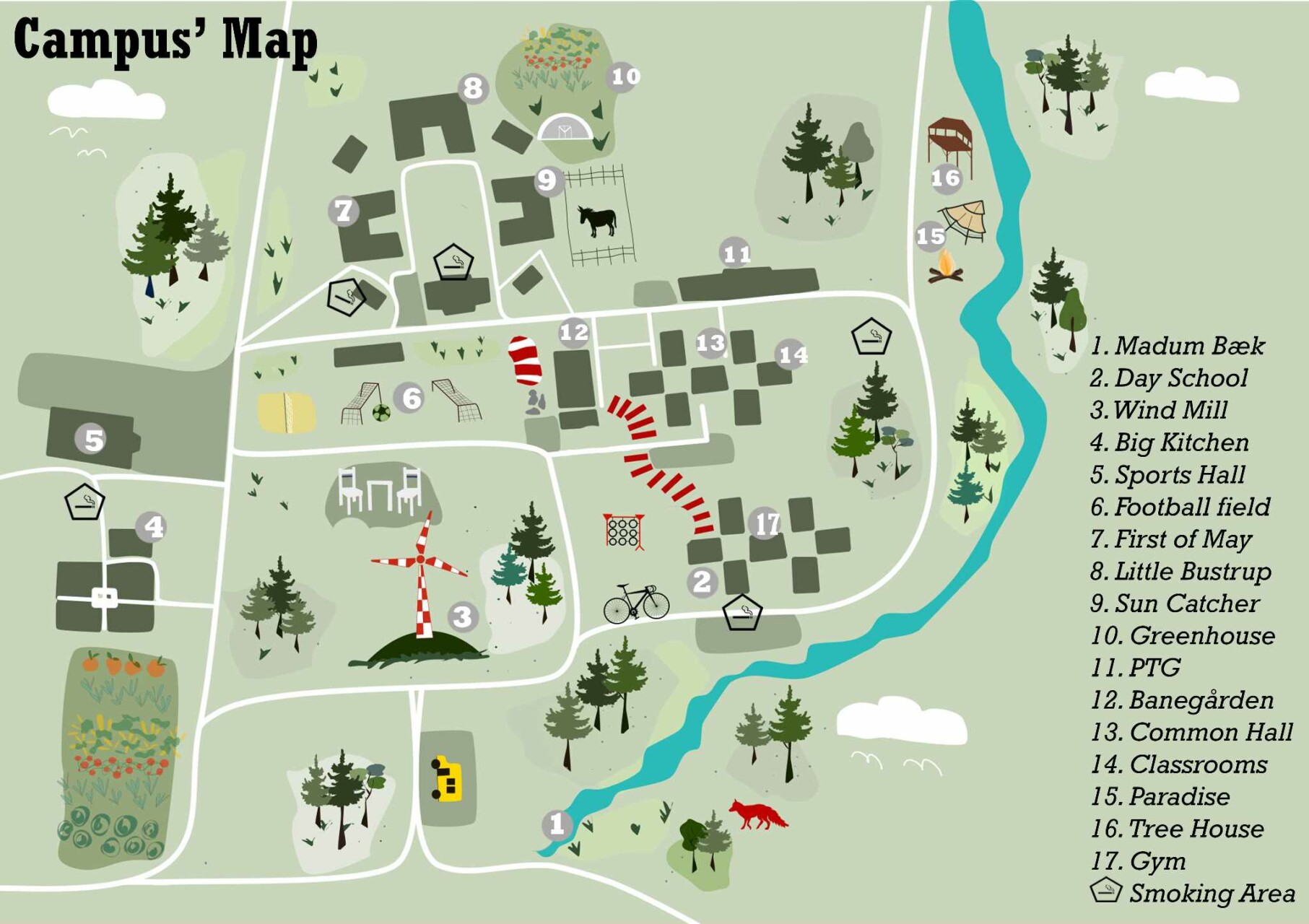
Meet the Teachers
The teachers from DNS’ teachers council are of different ages and cultures, but share the same goal: inspiring and moving new teachers. They are held together by common values, and they dedicate themselves fully to the idea of educating the teachers of the future as a way to have a positive impact on the world. Our definition of Teacher differs from the traditional image that is commonly associated to the word. At DNS, being a teacher is not just about communicating knowledge, sharing information and facts. It is rather about making others grow, it is about sticking together to run our school, it is about holding hands to create bonds of change. In this sense, our teachers certainly find themselves in quite a challenging position.
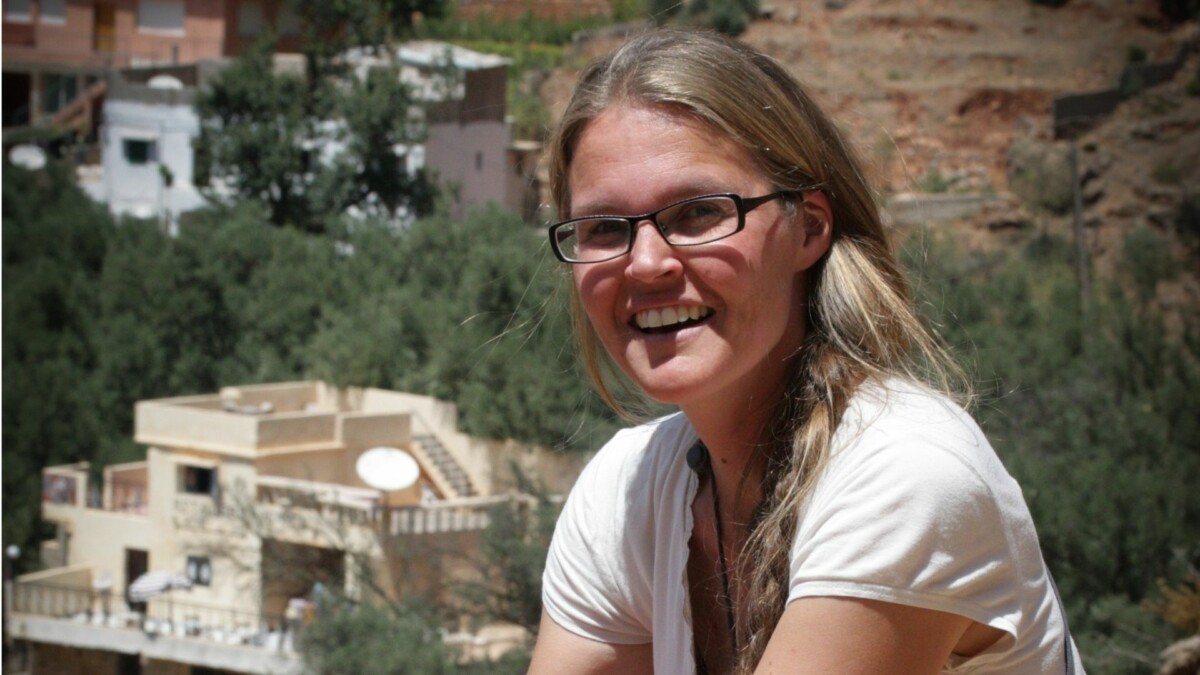
Annica from Sweden – Headmistress
Annica has since 1993 worked within the educational and pedagogical field in Denmark. For the first 16 years teaching in two different Small Schools, care homes that offer extra ordinary programmes for some of the most vulnerable youth in Denmark. In 20-09 she moved to Tvind, to work as DNS teacher, and has since 2018 been headmaster of DNS. She lives at Tvind with her son, and shares life with all students and teachers. Annica is passionate about training Another Kind of Teachers, and committed to the further development and expansion of DNS for many years to come.
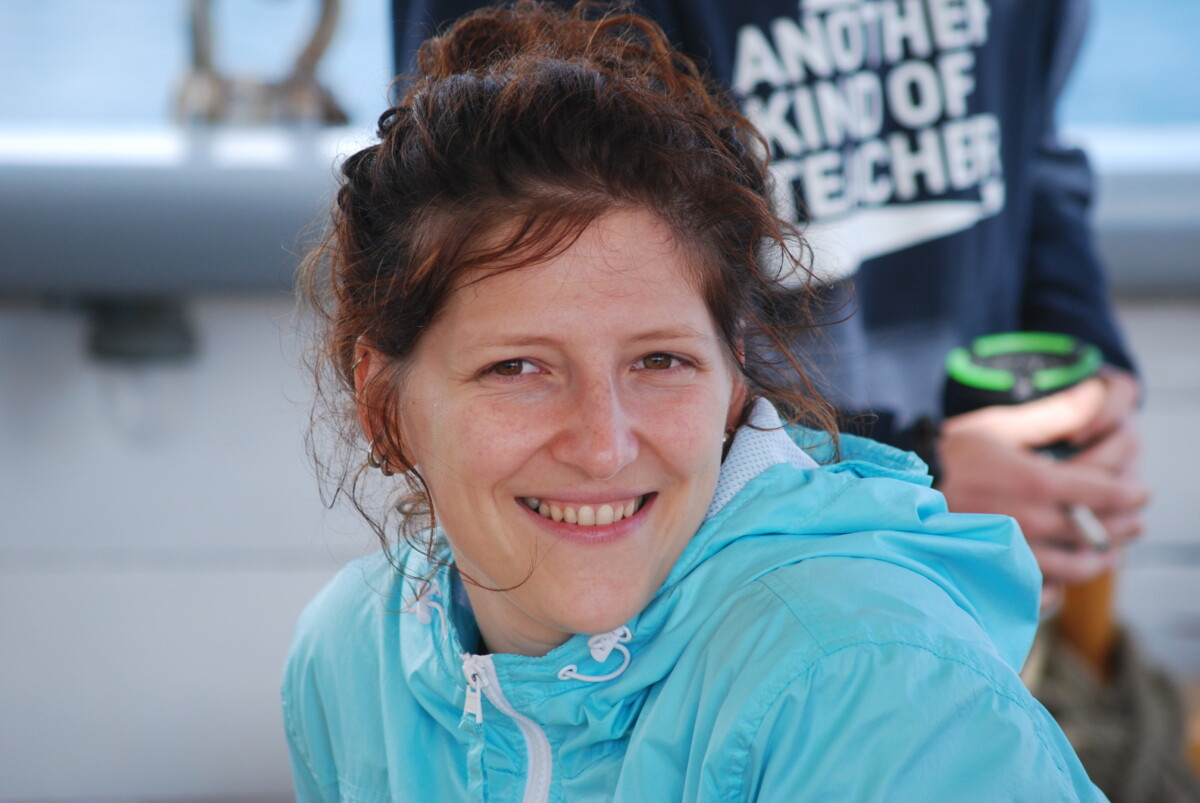
Jenifer from Hungary, DNS teacher
Jenifer decided to become a DNS teacher before graduating. From her view, DNS is a great opportunity to embrace herself as a person, as well as a chance to embrace as a teacher all the creativity, critical thinking, collective processes and even the difficulties that she has already experienced as a student. For Jenifer, being a DNS teacher is a lifestyle and an opportunity to be connected, in many different ways, to the rest of globe, to the people, to their struggles and dreams, and, in this way, to change the world from bottom up.
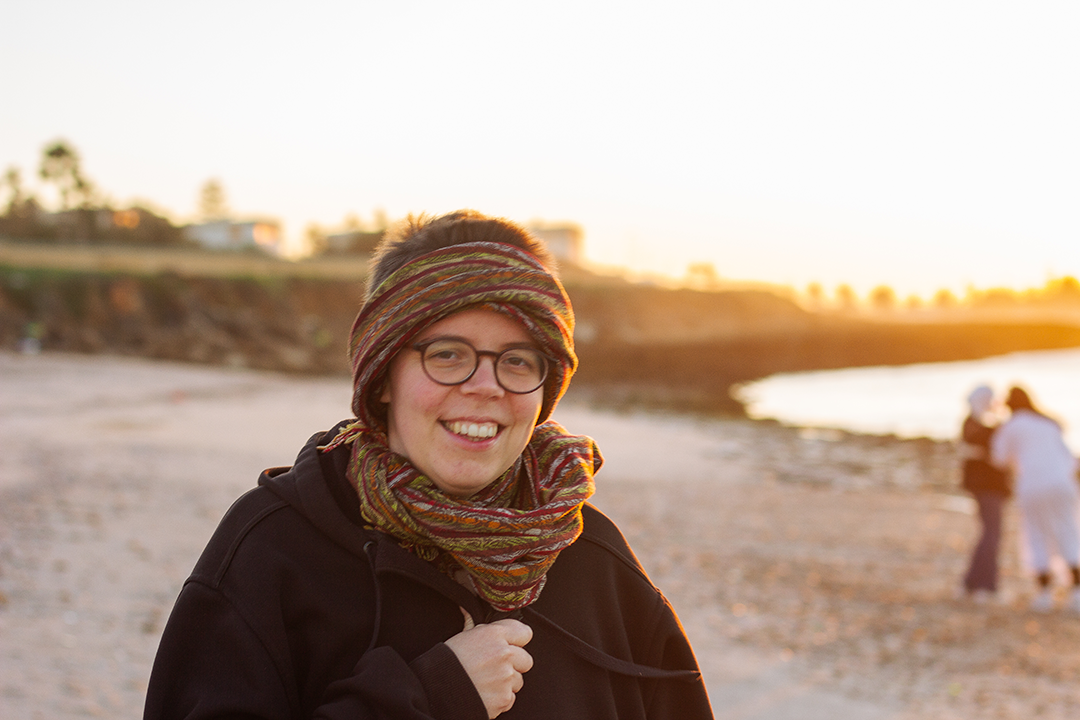
Sarah from France, DNS teacher
Sarah is a graduate and teacher since 2023. She sees DNS as a great opportunity to work with a group of diverse students and build projects together. She values the outcomes of the DNS program and seeing how group of students grow from being exposed to challenging situations, meeting with their surroundings, and how much we are able to build when we are working together. Sarah is also a graphic designer and enjoys doing creative things. Besides that, she aspires to be a long-distance runner.
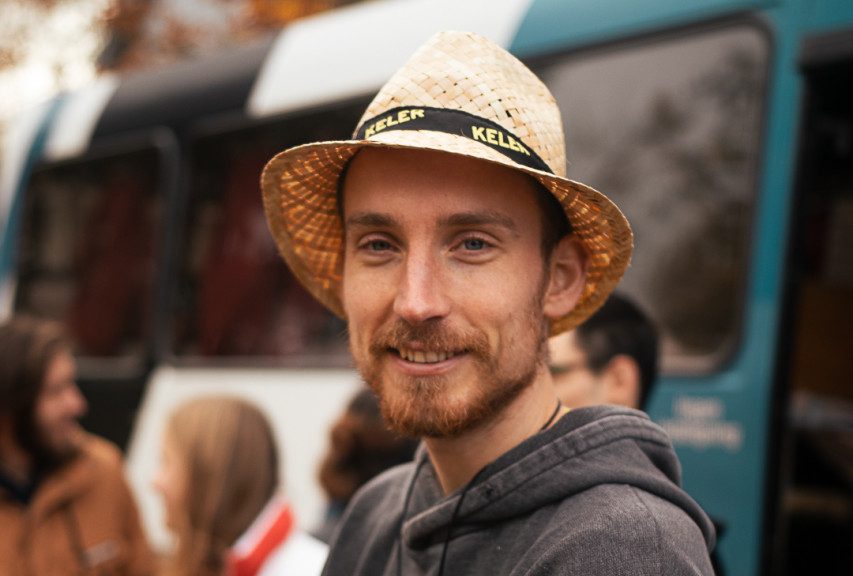
Damir from Croatia, DNS teacher
Damir stayed to teach in DNS after graduating because he found that he loves living in an intentional community, but also because he believes in the potential of this program to change lives by enabling young people to open up to their full potential. Otherwise, he’s also both an environmental engineer and pharmacist by profession and is quite passionate about natural sciences and getting to know people deeply.
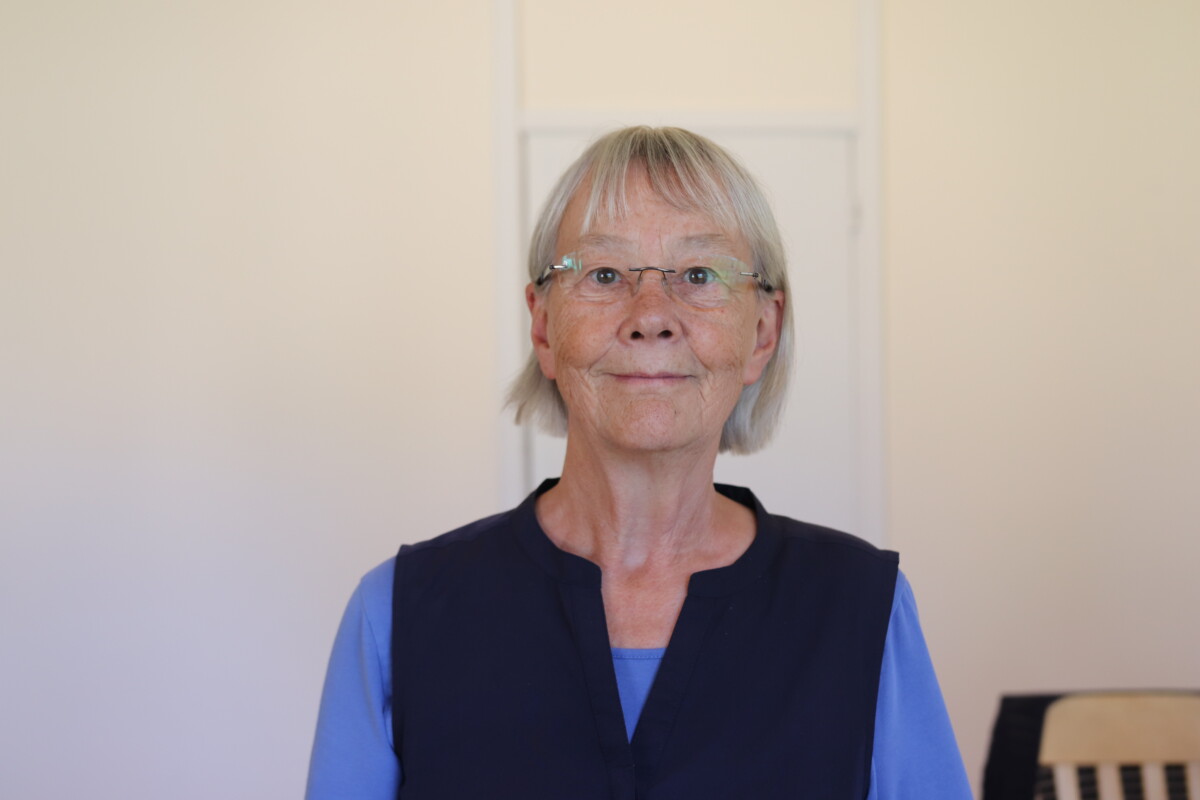
Dorte from Denmark, Administration Officer at DNS
Dorte was educated as a preschool teacher in 1973. After that, she has been busy in a variety of life experiences, including being the headmaster for a Teacher Traning College in Angola, and working as a Development Instructor Teacher. She has always liked being a teacher for adults, and she finds it very important to educate teachers, since she believes that educating the next generation is the best way to create development. Dorte has been working in DNS since 2006, first as a core group teacher, and later as a main responsible for DNS’s economy management and administration.
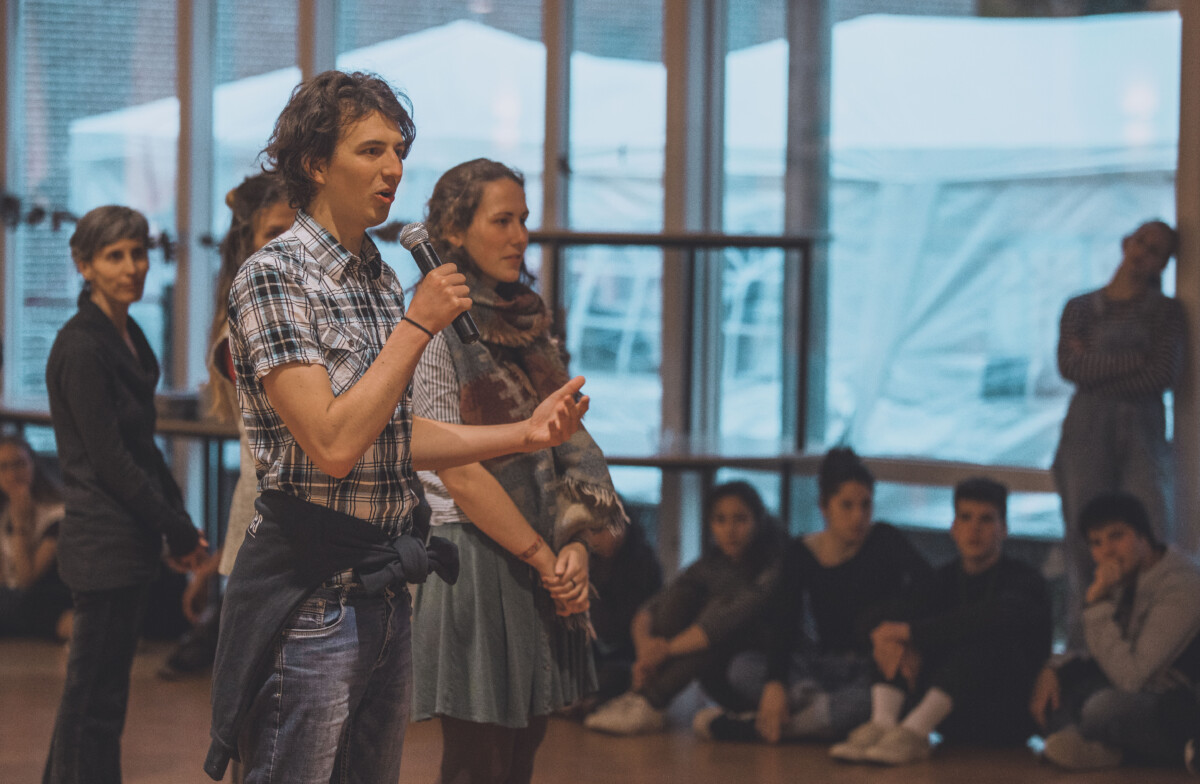
Justas from Lithuania, Communication Officer at DNS
Since Justas graduated from DNS in 2017, his role in the school is the recruiting of new students for the programme. He believes that DNS is a unique model for schools of the future, and therefore he finds it important for people to know we exist and give them the possibility to join us on this journey we face ahead. What makes him feel attached to DNS is that students and teachers together shape the school. Their vision, experience, and methods may differ, but their differences empower them to create something bigger than themselves.
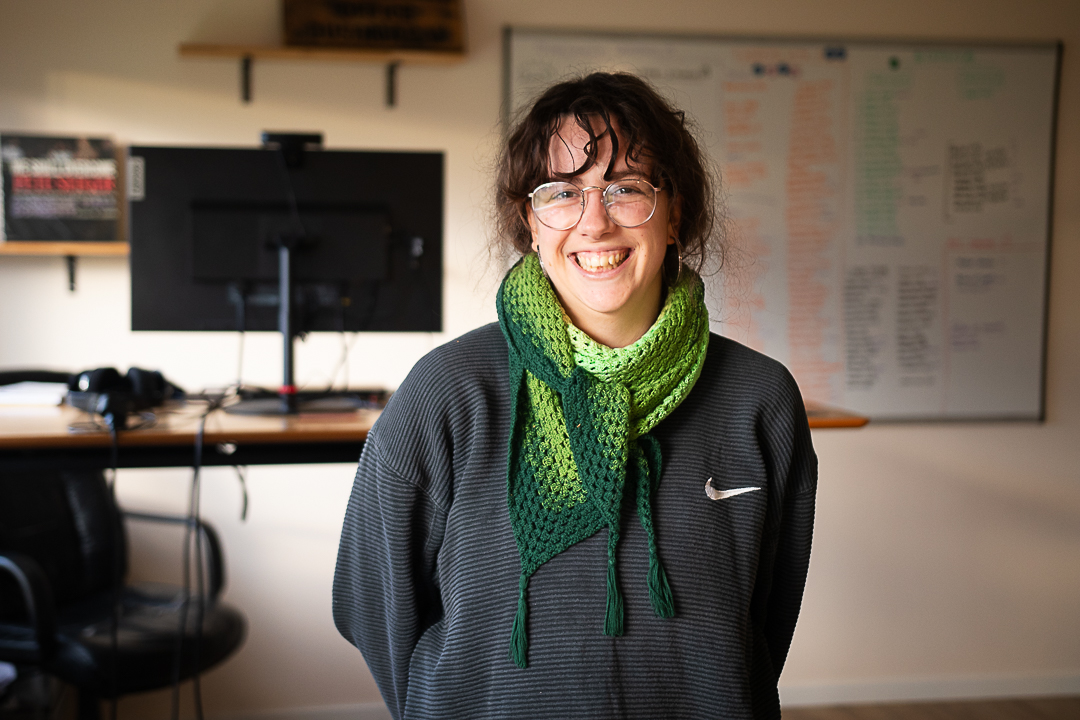
Réka from Hungary, DNS Teacher
Réka came to DNS because she wanted to become a teacher and looking at the program she knew it would give her the experiences and skills she was looking for and finds essential for a teacher. She became a DNS teacher to contribute to the school and make it possible for more and more people to go through the DNS program, develop their global perspective and meet many incredible people on the way. She also stayed because she sees endless possibilities to learn and challenge herself as a teacher here.
The biggest value she learned from the DNS program (and wants to pass on to future DNS students) is that most of the things that seem impossible can be achieved if we work together.
Getting here
The nearest town is Ulfborg. We will arrange for someone to pick you up at the train station there. Here is information on how to get there:
By Flying
✈️ Billund Lufthavn
- Near Vejle
- cheaper airlines such as Ryanair
- Distance from campus and price 2-3 hours 150dkk (standard ticket)
✈️ Aarhus Lufthavn
- near Aarhus
- not so many flights outside of Denmark, some Ryanair flights
- Distance from campus and price 3:30-4:30 hours 270 dkk (standard ticket)
✈️ Aalborg Lufthavn
- Northern Denmark (Aalborg)
- not many flights per day but some options are available
- Distance from campus and price 4:30-5:30 hours 270 dkk (standard ticket)
✈️ Copenhagen Lufthavn
- Eastern Denmark (Copenhagen, capital)
- large number of airlines flying to most European cities every day
- Distance from campus and price 4:30-5:30 hours dkk kr (standard ticket)
- Generally cheaper options from Copenhagen on Flixbus or similar sites.
By Bus
- Flixbus to Holstebro, which is 20 mins away from Ulfborg by train (Herning-Odense-København)
- Flixbus to Ringkøbing, which is 20 mins away from Ulfborg by train, (Skjern- Grindsted- Billund- Vejle- Odense- København)
- Fleet to Holstebro (Herning – Vejle – Middelfart – Odense – København) https://fleet.dk/
- Kombardo bus to Herning (CPH Lufthavn- København-Aarhus-Herning) https://www.kombardoexpressen.dk
Flixbus to Vejle from major cities in Europe including (Berlin, Hamburg, Wrocław, Katowice)
By Train
Regional train to Ulfborg (from Holstebro- 20 minutes, 42kr standard)
Intercity trains to Holstebro (Interrail comes to Holstebro) Danish train website: https://www.dsb.dk/ / rejseplanen.dk /
Getting around
Our campus is a big place where different organizations share one common place, including a historical Wind Turbine!
You can find below a simplified version of the layout of our campus.

Meet the Teachers
The teachers from DNS’ teachers council are of different ages and cultures, but share the same goal: inspiring and moving new teachers. They are held together by common values, and they dedicate themselves fully to the idea of educating the teachers of the future as a way to have a positive impact on the world. Our definition of Teacher differs from the traditional image that is commonly associated to the word. At DNS, being a teacher is not just about communicating knowledge, sharing information and facts. It is rather about making others grow, it is about sticking together to run our school, it is about holding hands to create bonds of change. In this sense, our teachers certainly find themselves in quite a challenging position.
The History of DNS
DNS since 1972
The Nessesary Teacher Training College started September 1972 in buildings constructed on a farming property called Tvind. The institution was recognized and partly funded by the Danish Government. The first team of 100 students started their 4 years training to become teachers in the Danish schools
DNS’ first teams’ teachers had truly innovative ideas of how a school should be run. They wanted their students to meet people from all around the world and learn about different cultures. They wanted them to understand the big issues of their time and to be able to take a stand. They themselves craved to act and change the present reality — and to do so through education. Lastly, they believed that the young should be granted the tools to actively work towards the shaping of a better world, too. These ideas and values are up to the present moment at the core of DNS. As of today, over 1200 teachers were trained in DNS.
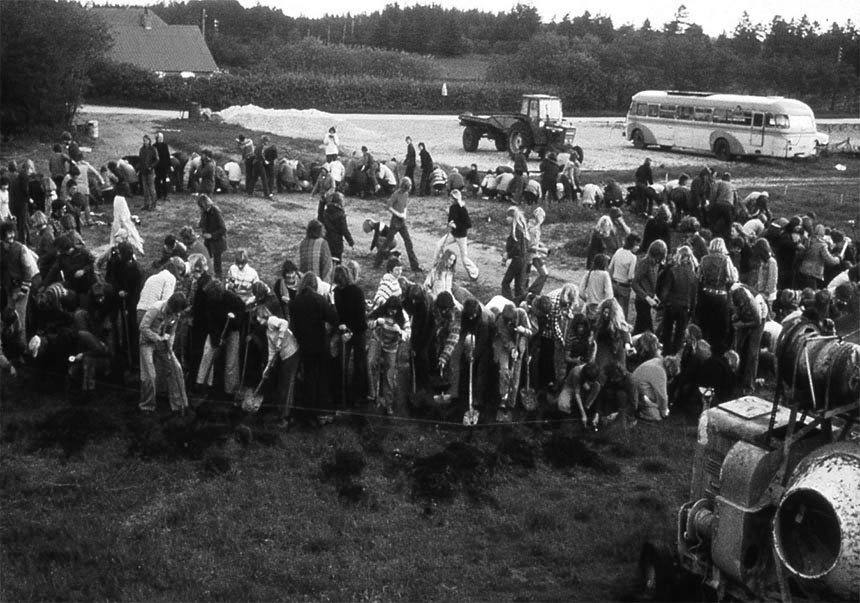
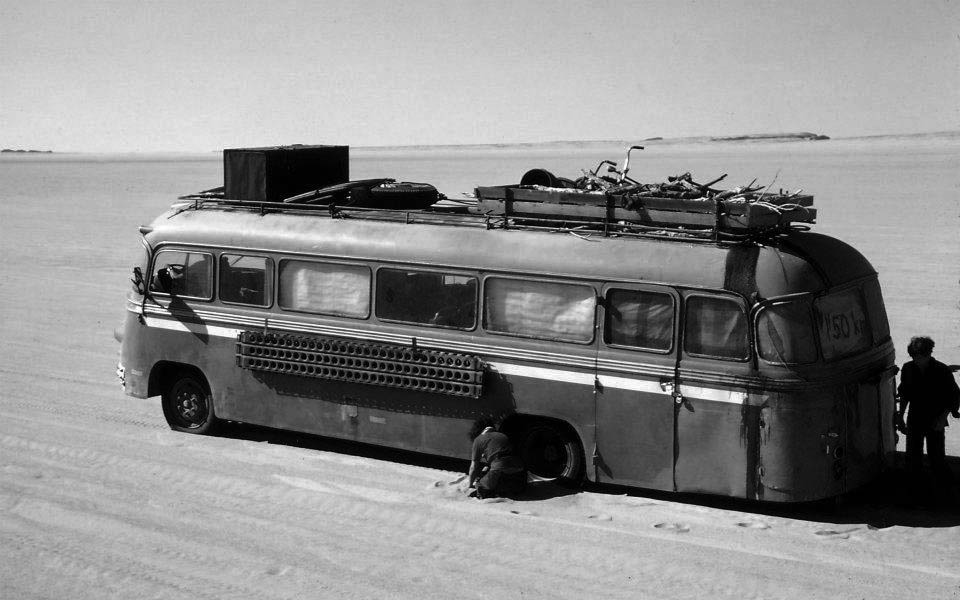
The History of DNS

DNS since 1972
The Nessesary Teacher Training College started September 1972 in buildings constructed on a farming property called Tvind. The institution was recognized and partly funded by the Danish Government. The first team of 100 students started their 4 years training to become teachers in the Danish schools.
DNS’ first teams’ teachers had truly innovative ideas of how a school should be run. They wanted their students to meet people from all around the world and learn about different cultures. They wanted them to understand the big issues of their time and to be able to take a stand. They themselves craved to act and change the present reality — and to do so through education. Lastly, they believed that the young should be granted the tools to actively work towards the shaping of a better world, too. These ideas and values are up to the present moment at the core of DNS. As of today, over 1200 teachers were trained in DNS.


